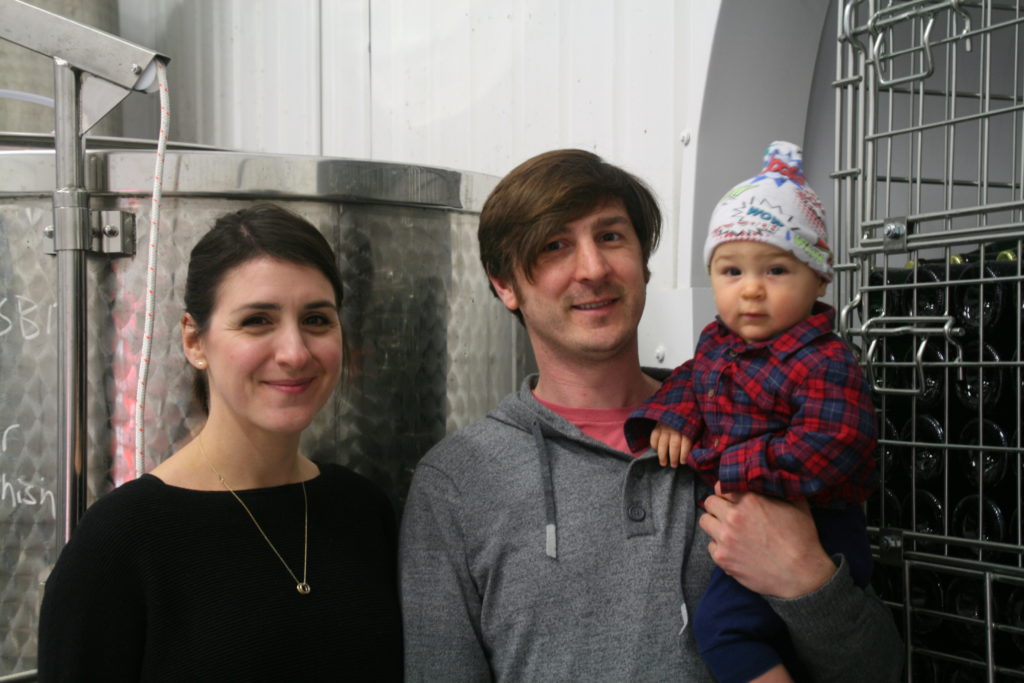Stretching from Gateshead to London, England has a growing urban winery scene, writes Peter Ranscombe in his latest English Wine Week article.
WHEN you think of a winery, it’s natural to form a mental image of the sun-drenched rolling hills of France or Spain or Italy.
Tyneside isn’t perhaps the first place that springs to mind.
Yet Gateshead’s Team Valley is home to what’s currently the UK’s most-northerly winery.
The Winery by Laneberg Wine is a family affair – it’s run by founder and winemaker Elise Lane, with help from her husband Nick, her dad Ray, her mam Ruth, her sister Laura, her brother-in-law Ash, and her cousin Liam, who was her first employee.
Lane studied chemistry at Oxford and returned home to Newcastle in 2017 to set up her business.
She timed it just right – 2018 was a watershed year for the English wine industry, with great weather for growing grapes, resulting in a very impressive concentration to the flavours in the fruit.
Lane bought the grapes for her maiden vintage from a vineyard in Leicestershire; and the results were a big hit.
Her 2018 Pinot G (£14.10, lanebergwine.com) is not just a great English pinot grigio, but a great pinot grigio, full stop.
It’s got attractive attractive green apple, pear and floral notes on the nose, and then crunchy green apple and lemon on the palate, alongside crisp acidity and a spicy white pepper note on the finish.
Textbook stuff and at a sensible price too.
From the forthcoming vintage, Lane’s 2019 Maximilian (£15.39, lanebergwine.com) – which is available to pre-order through her website – is the most interesting red wine made from the regent grape that I’ve tried.
It’s a German variety that copes well in England’s cool climate – in this instance, Furnace Yark’s Hill vineyard in Herefordshire – as feels a bit like pinot noir, with similar acidity and lightness, but with more blackcurrant-focused flavours.
There’s a delicious smoked meat note on the finish, hinting at its barbecue pairing abilities.
Underneath the arches
Further south, London is currently home to four urban wineries, including Scottish Field favourite Blackbook, run by ex-pat Scot Lynsey Verrillo and her American husband, Sergio.
For the grammar pedants among you, that’s to say that Sergio is Lynsey’s husband and is an American, not that she keeps a range of husbands with differing nationalities in a cupboard, so she can chop and change throughout the week.
Sergio’s 2017 Blackbook GMF Sparkling (£23.50, blackbookwinery.com) is immense fun – it’s made from seyval blanc grapes harvested at the Yew Tree vineyard in Oxfordshire, with its fresh acidity pairing nicely with sushi.
His whole range is worth exploring, especially the way he brings out the characteristics of each vineyard in his chardonnay and pinot noir.
Like Laneberg, Blackbook is a very urban winery, located beneath railway arches in Battersea.

London calling
And it’s not just wines being made in London – there are grapes growing there too.
Sergio sourced bacchus from Forty Hall – a social enterprise vineyard – to craft his Tamesis, the first wine to be made from grapes grown in the capital since Roman times.
Tamesis, alas, is now sold out, but award-winning wine writer Mike Turner’s new online retail business, Feel Good Grapes, stocks the vineyard’s own 2019 Forty Hall Bacchus (£17, Feel Good Grapes).
It’s much riper on the nose than I’d expect, with damp hedgerow, elderflower, asparagus and a touch of lemon rind.
The concentration of the fruit flavours on the palate are equally as impressive, with elderflower cordial and green pepper to balance the acidity.
Tomorrow – as English Wine Week enters its final weekend, we take a look at Welsh wines.
Plus, don’t forget to catch up on yesterday’s look at what the students have been learning to make at Plumpton College.
TAGS

